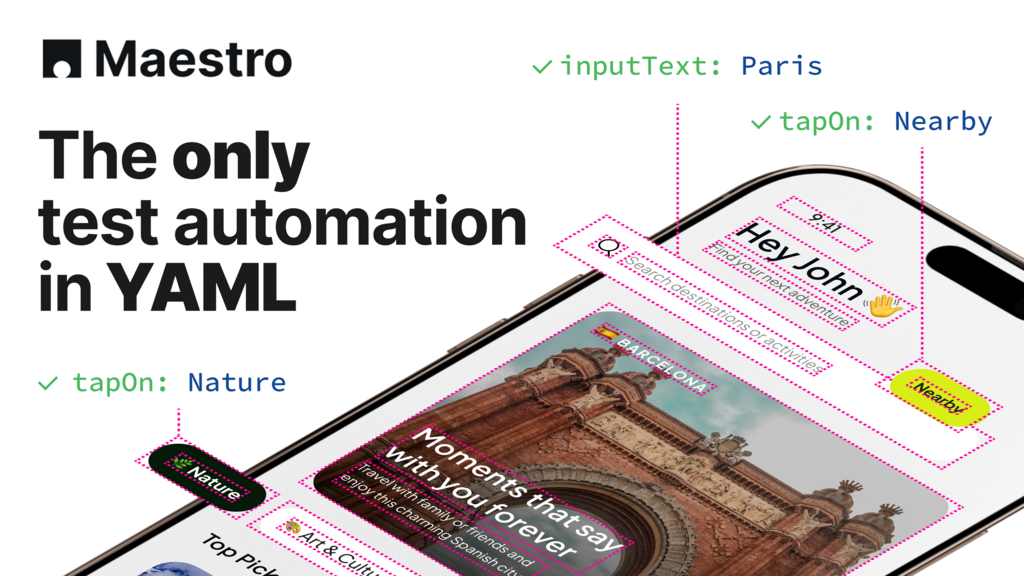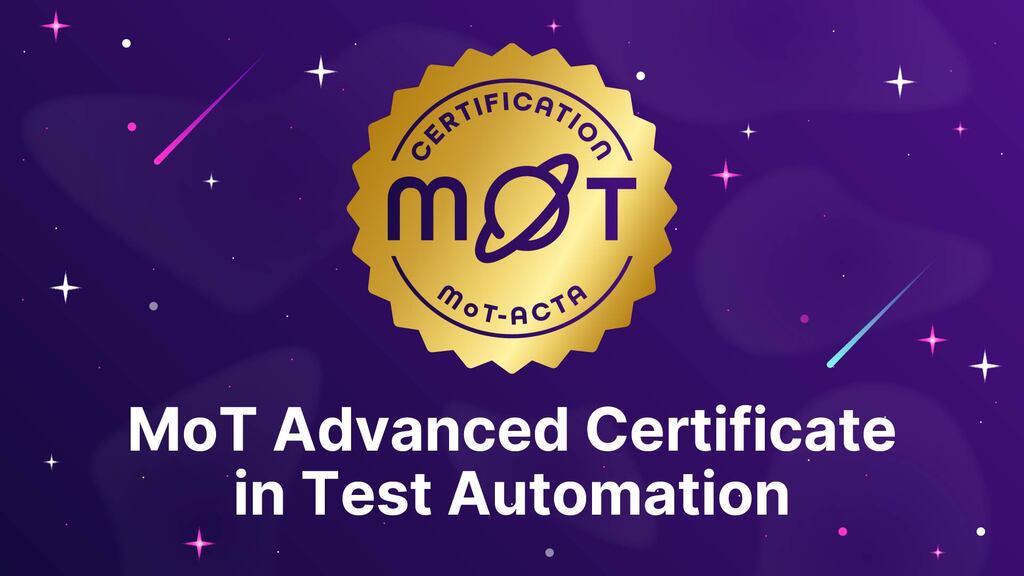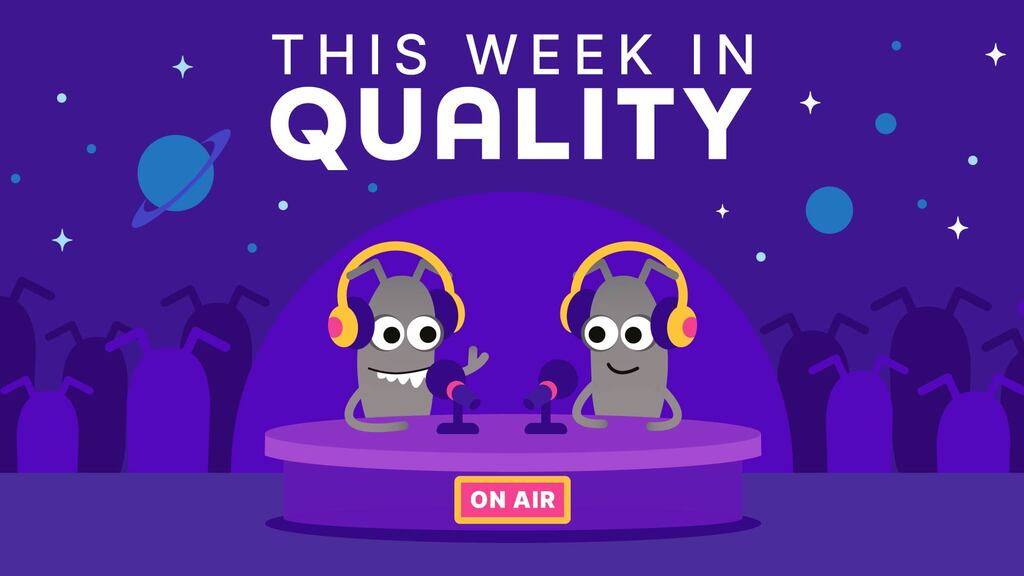"Testing is more than just a job. It's a journey of continuous growth and discovery. As a tester, you'll always be learning, and that's what makes this field exciting and rewarding."
Starting a career in software testing can feel like stepping into a complicated maze. Most beginners feel a sense of anxiety and confusion when they start their journey as testers.
In most cases, such feelings are rooted in a lack of awareness, misinformation, and vague opinions that beginners hear from non-testers.
If you are feeling this, trust me, you're not alone.
Many of us have navigated these stages as beginners in testing no matter what we were doing before we began.
In this article, I want to share the story of my journey into software testing, the common hurdles beginners face, and how you can set yourself up for success.
Navigating common beginner hurdles
From developer to tester: tougher than I thought
I began my career as a .NET developer, working on developing web applications using C#.
An opportunity in C# test automation caught my project leader’s attention, and the leader suggested that I start doing that.
It was a fresh start! How could I resist? Now I figured that all I would need to do would be to apply my development skills to build test automation utilities and framework code. It would be almost as familiar to me as working on a standard development project.
Or so I thought.
Then, something unexpected happened — one of our testing team members left the company. Not surprisingly, I was asked to support hands-on testing, which I hadn't done before.
At first, the transition felt overwhelming. Despite my technical background, testing was an entirely different beast. It required me to adopt a totally different mindset. Lack of formal training, the complexity of testing terms, and a fear of making mistakes added to my anxiety and frustration.
And I didn't have a lot of time to learn how to test. I had high priority testing deliverables to ensure that the new features were working fine. So I had to tend to my learning needs in "pit stops" along the development racetrack.
It was a rough transition. At first, I couldn't wait to get back to my comfortable development role!
So many questions…
One of the biggest hurdles I faced as a beginner was the sheer volume of "newb" questions I had:
- Is testing about validation?
- Is it about verification? How does that differ from mere validation?
- Is it about assuring quality? What happens if there are issues in production?
- Is it simply manual work? Am I ruining my career by doing non-technical work?
- Is testing a dying profession? Will testers be relevant in the future?
- Is it a well-paying profession? Will I be able to earn as much as a developer?
It is perfectly normal to feel unsure about your profession, especially when you are just starting out. But you'll find that experience will resolve many if not all of these doubts.
Testing is a critical part of the software development lifecycle, and there's a growing demand for skilled testers. Whether you're into exploratory testing, automation, or working on AI and machine learning in testing, there's a solid career path for you. Also, yes, it pays well!
A universe of new terminology
The world of testing can sometimes feel like a vast maze, especially when you start exploring different testing types, techniques, and tools. You'll hear about various testing types such as unit, component, conformance, integration, system, and so on.
Each type of testing serves a different purpose, ranging from testing individual aspects to ensuring the entire system works together seamlessly. It can get even more confusing when other members of the team use different terms to denote the same thing.
And I haven't even talked about test automation, which contains its own world of new terms.
You'll encounter terms like regression testing, GUI testing (desktop, mobile, and web), API testing, sanity testing, unit testing, and many more. These testing types are distinct from each other and you may need to use different tools to handle all of them.
The key is to understand these concepts and find what is needed for your current context and project work. Training sessions help, but cannot substitute for hands-on experience.
The key is to start with small and simple tasks to hone your skills gradually. You don't need to learn everything at once.
Your computer science degree doesn't count for much
Early in my career, I thought that formal education in software engineering would give me an edge in everything I might do in tech. This might be the case for development positions, where your formal degree curriculum covers various industry-relevant concepts. However, it's not as much of a distinguishing factor for software testing.
Good testing education is rare. What will set you apart is an ability to learn and implement new concepts quickly. Writing test reports, giving demos, and presenting your findings to a variety of stakeholders will reinforce your learning while increasing your credibility as a tester.
Set yourself up for success
Dive into the pool and start testing!
The best way to learn testing is simply to start testing.
Pick a product, any product that you like or are annoyed with, and test it.
Prepare a report of your findings. Use the below as keywords to fill your report:
- Did you find any issues?
- What could have been improved?
- What did you like or dislike about the product?
- Is there something that is not clear (ambiguous)?
- Would you recommend this product to others? Why or why not?
Congratulations, you've just completed your first testing assignment! If you explored the product that your organisation produces, you can now share this report with a product owner or a senior tester in your team. If you explored another product, share your report with the organisation that created the product you explored. Any form of feedback will help you learn and grow.
Develop a learning plan
Setting actionable and achievable goals is crucial to your success as a tester.
Focus on micro-goals like:
- Learning a new tool
- Understanding a specific testing type
- Applying a specific concept to your project
Set a realistic and attainable timeframe for your goals (Recommended: one week to three months)
Before you begin your learning, set a clear goal or intention:
- Do you want to be an expert in test automation? Or exploratory testing? Or anything else?
- Are you interested in the strategic aspects of testing?
- Do you want to explore new tech such as AI or machine learning for your testing?
With a clear end goal, you now have a guide to your learning path.
Explore resources for beginners
There are plenty of resources on the web to help you get started.
Ministry of Testing offers a variety of resources for beginners to learn foundational concepts and ground themselves in good practice.
Here are some of the notable collections that have helped beginners around the globe quickly get onboarded with testing.
- Software Testing Glossary | Ministry of Testing - Learn key software testing terminology rapidly with 99-second introduction videos on software testing topics.
- What is testing? | Ministry of Testing – Covers the foundations of software testing
- What Do Software Testers Do? | Ministry of Testing – What software testers do, or can do, as part of their testing roles at work.
- Getting Started with Test Automation | Ministry of Testing - Resources for test automation.
- Test Automation Framework Essentials | Ministry of Testing - Developing a test automation framework.
- MoT Software Testing Certifications | Ministry of Testing – Level up your software testing skills with a curated learning track in testing and automation.
- 30 Days of AI in Testing | Ministry of Testing - A list of 30 challenges on AI in software testing.
You can also find support for discussions and doubts on any of these resources for free at The Club (ministryoftesting.com)
Build testing skills
Once you understand the basics, the next step is to gain practical experience.
Participate in testing activities, contribute to open-source projects, collaborate with development teams, and learn the art of skilled software testing. This will also give you practical exposure in:
- Creating structured testing work
- Creating and prioritising test scenarios
- Preparing testing reports
- Discussing issues and suggestions for improvement.
- Presenting your work to others
- Getting feedback from peers and mentors and acting on it
- Understanding problem-solving
- Finding new learning opportunities and identifying the next steps
Cultivate a mindset of ongoing learning. Treat each task as an opportunity to learn something new.
Seek mentorship and ask questions
Most of the time, mentorship is available close to us but we do not recognize it. Do not hesitate to seek mentorship from experienced testers on a project or people you find on social media or in communities.
Networking within the community can open doors to new opportunities and perspectives. In my decade-long journey, most growth opportunities came from people who were not directly working with me on my team or project.
Also, never be afraid to ask questions—no question is too basic or "stupid." By asking questions, you show your willingness to learn, and you may become involved in future meaningful discussions and projects.
Find a community and support system
A great thing about software testing is the presence of amazing communities and helpful folks who are ready to support you with your journey.
Joining testing forums and groups will help you stay connected with the broader testing community. Online platforms like the Ministry of Testing Club, or specialised forums for your tool or technology, offer a wealth of curated resources, events, courses, and so on.
You should also attend workshops, conferences, and local city meetups to learn from others and share your experiences.
Reflect on your progress frequently
To keep yourself on track, ask yourself these daily and weekly reflection questions.
Daily questions:
- What did you accomplish today?
- What do you think of the work you did today?
- What are your top priorities for tomorrow?
- Did you set the right priorities today? Why or why not?
Weekly questions:
- What did you focus on during the week? Have you focused on the right things?
- What weekly wins have you created, and what are you most proud of?
- What are you going to focus on next week?
- How can you improve on what you did last week?
Tips for continued growth
- Never impose constraints. Be open to talking with people outside your direct team.
- Don't limit your learning to what's in your organisation's training plans. Always be ready for the next role.
- Bring new concepts and dimensions of thought to your team.
- Find ways to contribute to the overall success of your projects. Look for micro opportunities to contribute.
- Success and failure are both parts of the journey. Not everything will go smoothly, and sometimes you may feel stuck. That's okay. Bounce back quickly.
- Remember, the most important part of your journey is “learning”. If you've learned something new, you've won.
- If you are stuck, change your approach, not your goal.
Starting your testing career can be challenging, but with the right mindset, resources, and support, you can overcome common hurdles and set yourself up for success.
Embrace the learning process, seek mentorship, and stay connected with the community.
Testing is more than just a job. It's a journey of continuous growth and discovery. As a tester, you'll always be learning, and that's what makes this field exciting and rewarding.
So, take that first step, and happy testing!
For more information
- How to Become a Software Tester Without A Computer Science Degree, Cassandra H. Leung
- Ten Misconceptions About Software Testing - That Non-Testers Share, Kate Paulk
- Software Testing Essentials: Resources for Beginners, Ministry of Testing Collection





